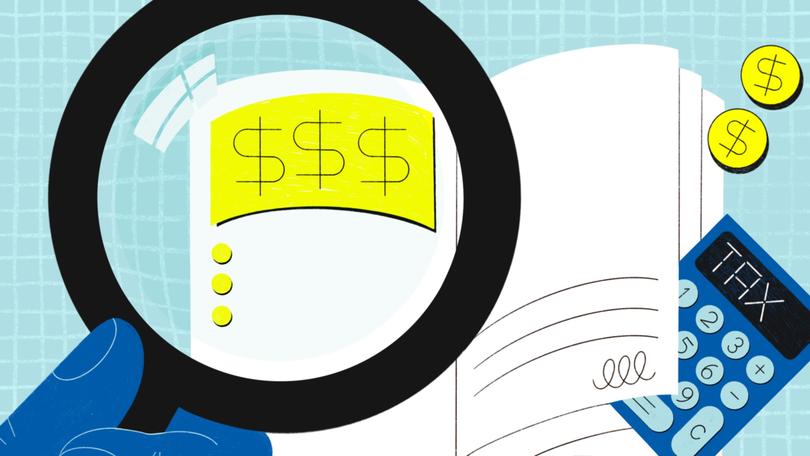NOEL WHITTAKER: The solution to managing unpredictable tax policies
NOEL WHITTAKER: Taxes are back in the spotlight and the buzz around potential policy changes is creating ripples of concern among investors, business owners and everyday Australians alike.

Taxes are back in the spotlight and the buzz around potential policy changes is creating ripples of concern among investors, business owners and everyday Australians alike.
We’ve all seen headlines hinting at changes to negative gearing and adjustments to capital gains tax rules, but these are just the tip of the iceberg.
While the Prime Minister may be quick to reassure us that there’s “nothing to see here”, we know governments have a habit of making changes when we least expect them.
Sign up to The Nightly's newsletters.
Get the first look at the digital newspaper, curated daily stories and breaking headlines delivered to your inbox.
By continuing you agree to our Terms and Privacy Policy.Last month the Australian Taxation Office gave a clear message: it’s taking compliance seriously. It sent letters to major insurance brokers requesting details of customers with high-value assets — think fine art, marine vessels, thoroughbred horses, luxury vehicles, motorhomes and even aircraft. If you own any of these, the ATO is keen to know.
And it’s not just happening down here — let’s take a global tour of the latest international tax developments and what they might mean for you.
Canada’s recent tax changes offer some clues about directions other countries may take.
From June 25, Canada increased its CGT rate by reducing the discount from 50 per cent to 33.3 per cent for individuals with gains over $250,000 in a single financial year.
There were no exceptions and no “grandfathering”.
Canadians had just 30 days to offload assets before the new rules were applied to everything, regardless of when they were purchased. An accountant in Toronto told me those 30 days were the busiest of his career, as clients frantically moved assets.
There’s a lesson here for Aussie investors. Shares can often be transferred with little hassle but property transactions have unpredictable timelines and incur stamp duty — something to keep in mind when planning your portfolio.
Tax is also a contentious issue in the lead-up to the US elections.
On one side, Donald Trump promises a corporate Utopia (or at least lower taxes). On the other, the Democrats are floating a proposal to increase the corporate tax rate from 21 per cent to 28 per cent. And they plan to hike the top rate on long- term capital gains to 28 per cent for those earning over $1 million annually. Wealthy individuals could also see their net investment income tax rate rise from 3.8 per cent to 5 per cent.
The UK is looking to close tax loopholes to ensure the wealthy pay a fair share. They are talking about potential CGT increases and a 20 per cent tax on private school fees. This is shaking up families already stretching their budgets to provide their kids with private education.
And expect more tough measures to be announced in the new UK Government’s first Budget on October 30. At this month’s Labour Conference, the unions made no secret of their claims for massive increases, as well as wealth taxes on the richest one per cent.
Britain’s five-year political terms give PM Sir Keir Starmer the time to make significant changes.
A sweeping majority of 200 seats almost guarantees a win in the next election, giving Labour up to 10 years to implement its plans.
History suggests that tough policies often come early in a government’s term to avoid backlash closer to the next election.
The broader implications are clear: your assets are under greater scrutiny than ever before and as we see governments globally wrestling with tax policies, Australia will not be an exception.
In a world where tax policies can change overnight, proactive planning is your best defence. Review your investment strategies regularly, stay informed and be prepared to pivot when needed. After all, in the rapidly evolving tax landscape, the ability to anticipate and adapt is the key to thriving, not just surviving.
Ask the expert
Q: I’m 59. My work income is about $20,000 a year and my investment income $120,000. My super balance is $900,000. My mother wants to give us an early cash inheritance. The amount should be $250,000. Can I get her to put this money directly into my superannuation fund, or do I need to receive the money into my account first and then contribute to super?
A: The best strategy would be for your mother to give you the money directly, and then you dribble it into the super account at the rate of a tax-deductible $30,000 a year, including any employer contributions. On top of that, you could reinvest the tax refund the contribution would create by also putting that into super as a non-concessional contribution.
Noel Whittaker is the author of Wills, Death and Taxes Made Simple and other books on personal finance. His advice is general in nature and readers should seek their own professional advice before making any financial decisions.
